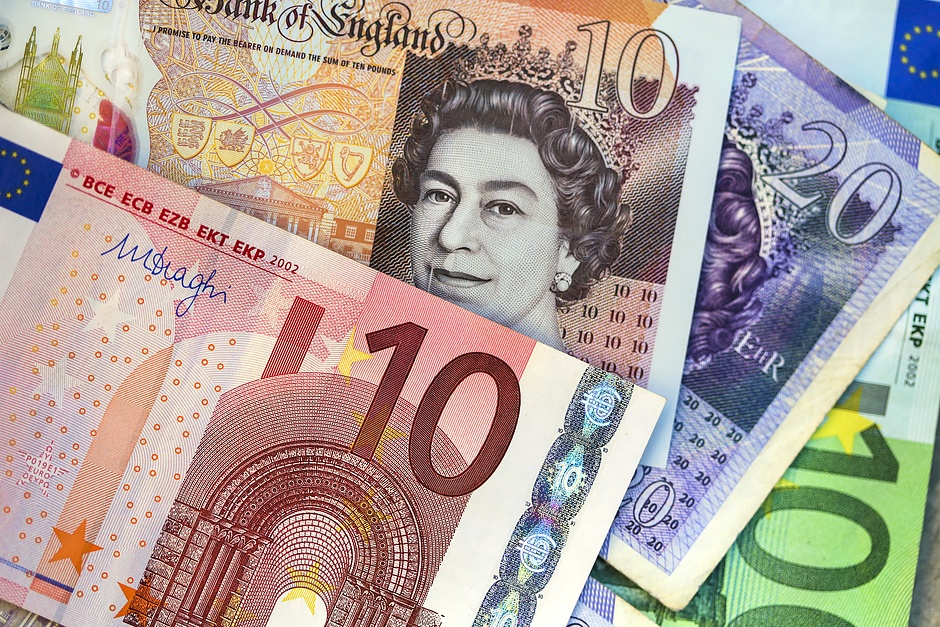Created
: 2024.10.29














![]() 2024.10.29 15:49
2024.10.29 15:49
The EUR/GBP cross trades in positive territory around 0.8340 on Tuesday during the early European session. The comments from the European Central Bank (ECB) policymaker Pierre Wunsch lift the Euro (EUR) against the Pound Sterling (GBP). Investors await the preliminary Gross Domestic Product (GDP) data for the third quarter from Germany and the Eurozone, which are due on Wednesday.
ECB officials are divided on the necessity of a large reduction. On Monday, the ECB policymaker and Belgian central bank chief Pierre Wunsch noted that there is no urgency for the central bank to cut interest rates quicker and it could even live with a small. The less dovish comments provide some support for the shared currency. Meanwhile, ECB Vice President Luis de Guindos said on Monday that the central bank has made significant progress in bringing down inflation but can't declare victory yet.
Nonetheless, money markets are still pricing in nearly 50% odds of the ECB rate reductions by half a percentage point in the December meeting. The GDP numbers on Wednesday could offer some hints about the health of the German and Eurozone economies. The weaker-than-expected outcome could increase the likelihood of the ECB rate cuts in December and might drag the EUR lower.
On the other hand, the expectation that the Bank of England's (BoE) rate-cutting cycle might be slower than in the Eurozone could help limit the GBP's losses. According to a Reuters poll, economists expect the BoE to cut its Bank Rate by a quarter-point on November 7 to 4.75%, but a near-two-thirds majority anticipates no move in December.
The European Central Bank (ECB) in Frankfurt, Germany, is the reserve bank for the Eurozone. The ECB sets interest rates and manages monetary policy for the region. The ECB primary mandate is to maintain price stability, which means keeping inflation at around 2%. Its primary tool for achieving this is by raising or lowering interest rates. Relatively high interest rates will usually result in a stronger Euro and vice versa. The ECB Governing Council makes monetary policy decisions at meetings held eight times a year. Decisions are made by heads of the Eurozone national banks and six permanent members, including the President of the ECB, Christine Lagarde.
In extreme situations, the European Central Bank can enact a policy tool called Quantitative Easing. QE is the process by which the ECB prints Euros and uses them to buy assets - usually government or corporate bonds - from banks and other financial institutions. QE usually results in a weaker Euro. QE is a last resort when simply lowering interest rates is unlikely to achieve the objective of price stability. The ECB used it during the Great Financial Crisis in 2009-11, in 2015 when inflation remained stubbornly low, as well as during the covid pandemic.
Quantitative tightening (QT) is the reverse of QE. It is undertaken after QE when an economic recovery is underway and inflation starts rising. Whilst in QE the European Central Bank (ECB) purchases government and corporate bonds from financial institutions to provide them with liquidity, in QT the ECB stops buying more bonds, and stops reinvesting the principal maturing on the bonds it already holds. It is usually positive (or bullish) for the Euro.
![]()
Created
: 2024.10.29
![]()
Last updated
: 2024.10.29

FXStreet is a forex information website, delivering market analysis and news articles 24/7.
It features a number of articles contributed by well-known analysts, in addition to the ones by its editorial team.
Founded in 2000 by Francesc Riverola, a Spanish economist, it has grown to become a world-renowned information website.
We hope you find this article useful. Any comments or suggestions will be greatly appreciated.
We are also looking for writers with extensive experience in forex and crypto to join us.
please contact us at [email protected].
Disclaimer:
All information and content provided on this website is provided for informational purposes only and is not intended to solicit any investment. Although all efforts are made in order to ensure that the information is correct, no guarantee is provided for the accuracy of any content on this website. Any decision made shall be the responsibility of the investor and Myforex does not take any responsibility whatsoever regarding the use of any information provided herein.
The content provided on this website belongs to Myforex and, where stated, the relevant licensors. All rights are reserved by Myforex and the relevant licensors, and no content of this website, whether in full or in part, shall be copied or displayed elsewhere without the explicit written permission of the relevant copyright holder. If you wish to use any part of the content provided on this website, please ensure that you contact Myforex.
Myforex uses cookies to improve the convenience and functionality of this website. This website may include cookies not only by us but also by third parties (advertisers, log analysts, etc.) for the purpose of tracking the activities of users. Cookie policy